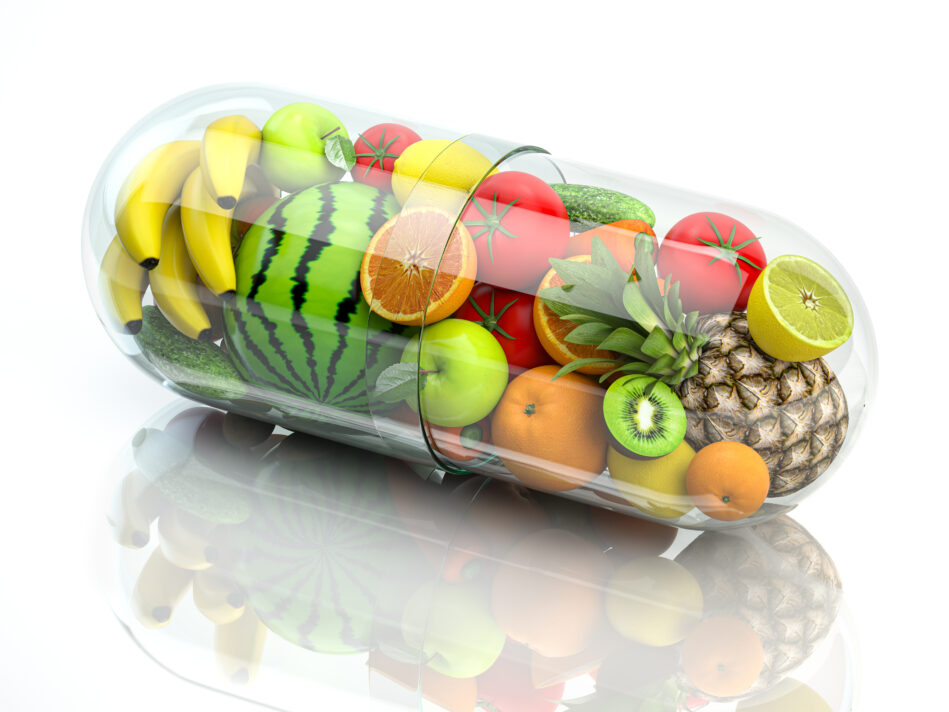[W] hile the human immunodeficiency virus, more commonly known to go by its initials, HIV, is nothing new, the science to better understand it and its qualities continues to grow. In a not so distant past, this disease was considered a death sentence to many, with few options to reduce its impact or prevent its progression into AIDS. Can food help for HIV/AIDS?
Thankfully, things are changing on this front, and more and more is not only understood about the virus, but great strides have been made in curtailing its effects.
“HIV is on the decline,” says Registered Dietician and MedShadow Medical Advisory Board Member Alison Acerra. “The latest CDC statistics show a 12% reduction in HIV diagnosis from 2021 to 2017. That’s terrific news, and individuals with HIV are living longer, healthy lives.”
Along with advances in the medication and treatment of HIV, so too is research proving that foods can impact your health and symptoms for nearly any condition.
Can Food Impact HIV?
If you focus on the “I” in HIV, you know that it stands for “Immunodeficiency.”
“Immunodeficiency means having a weakened immune system,” explains Acerra. “This leaves a person susceptible to infections, frequent colds, or flu, which commonly also take longer to recover from [for those with HIV].”
Food can assist in improving an immune system with the right diet.
“When it comes to overall management of HIV, the goal is to optimize immune function,” says Acerra. “We can do this by restoring and supporting all body systems affected by HIV.”
Diet Tips for HIV and Its Symptoms
To boost that immune system, you must focus on a healthy diet. Here are some tips that can help to reduce the symptoms of HIV.
1. Add More Whole Foods
Choose a well balanced, whole foods diet to combat your illness.
“This is the foundation of a well balanced diet,” says Acerra. “Whole foods are going to provide the nutrients needed to optimize immune function. Steer clear of overly processed foods that don’t provide nutritional value and stick with whole, minimally processed foods as much as possible.”
2. Maintain Healthy Digestion
A regular digestive system operating at its best can go a long way in keeping your body healthy.
“This is crucial because digestive imbalances will diminish the absorption of key immune nutrients,” says Acerra. “Meeting our nutrient needs is one of the most important things we can do to maintain a healthy immune system.”
Foods that help in maintaining digestive health, include those with plenty of fiber from whole plant based foods, such as whole grains, legumes, fruits, and vegetables.
Acerra also advises that “staying adequately hydrated” aids in digestive health.
3. Support Liver Detoxification
Your body’s liver serves as a primary filter, removing harmful substances and toxins from the blood.
“By supporting the liver’s detoxification function, you can reduce the burden of toxins in the body,” says Acerra. “This is important because excessive toxins can contribute to inflammation and compromise immune function.”
The liver is also responsible for producing important antioxidants that help to reduce inflammation thereby supporting a healthier immune system.
To detoxify the liver, Acerra suggests:
- Drink plenty of water
- Incorporate deep green, leafy vegetables often
- Eat plenty of fiber
- Sweat often, via exercise or sauna/steam use
4. Practice Safe Food Handling
It isn’t just the food we put into our mouths that can cause issues for our immune system. It can also be the unintended contamination on those foods that cause issue.
“Contaminated or improperly handled food can pose risks, potentially leading to foodborne illnesses that may exacerbate health challenges for those managing HIV,” says Acerra.
Some important tips to safely handling foods include:
- Cook meats thoroughly
- Wash all fruits and vegetables
- Maintain proper food storage
- Wash your hands often while handling foods
Food as Medicine
Foods go a long way into improving or worsening the symptoms and conditions you may face for any condition. Maintaining your best health is the most efficient way to combat these challenges.
In order to live a long and vibrant life with HIV or AIDS, you can benefit greatly with a well balanced diet. If you have any questions about your diet and its impact on your overall health, well being, or medical condition, please ask us in the comments below.






